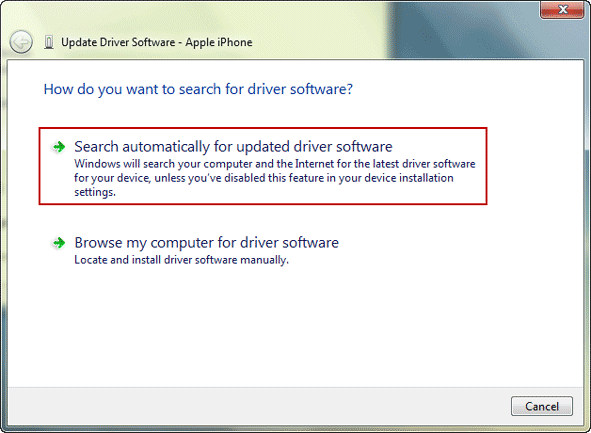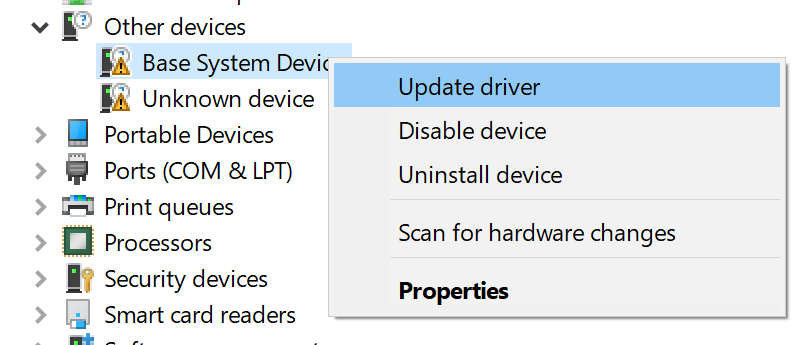- Vmware Mobile Phones & Portable Devices Driver Download For Windows 10
- Vmware Mobile Phones & Portable Devices Driver Download For Windows 8
- Vmware Mobile Phones & Portable Devices Driver Download For Windows 7
This switch presents a number of challenges and opportunities for the mobile industry in terms of securing and managing the device. This session will explore the benefits of virtualization on mobile phones and will provide an architecture overview. It is a must attend to understand how mobile virtualization will impact both consumers. If they are recognized successfully, it means the removal devices and cable are right. And the Apple mobile device USB driver has been installed on host. Step 2: Power on Mac OS X on VMware. Run VMware Workstation, click Mac OS X and power on this virtual machine. Then sign in Mac OS X with user and password. Msi n1996 video card driver. Tech Tip: If you are having trouble deciding which is the right driver, try the Driver Update Utility for MSI N1996. It is a software utility that will find the right driver for you - automatically. DriverGuide maintains an extensive archive of Windows drivers available for free download.
Vmware Mobile Phones & Portable Devices Driver Download For Windows 10
General Udisk Usb Device Driver Download Download Software H264visa 1.17 Incl Crack vokeon. VMware Creative AudioPCI (ES1371,ES1373) (WDM) Outdated: NVIDIA MPU-401 Compatible MIDI Device. Mobile Phones And Portable Devices: Acer NOKIA: Up To Date and Functioning.
Online Cybersecurity Degree
Pursue lucrative and in-demand roles with Utica College's 100% online cybersecurity degree. You’ll choose from four specializations to tailor your degree to your career goals. Study at an institution designated as a National Center of Academic Excellence in Cyber Defense Education (CAE/CDE). Request Information »
VMware, a provider of virtualization solutions for PCs and servers, wants to get into mobile phones, carve up their software and create virtual operating units -- much like the company's products already do with servers in enterprise data centers. The company announced its intentions Monday regarding its nascent VMware Mobile Virtualization Platform (MVP), which uses technology it acquired from Trango Virtual Processors last month.
The basic idea of abstracting the applications and data from the hardware itself has several reasons behind it, the first of which is aimed at helping device manufacturers reduce development time. The second focuses on end users, who presumably would be able to install a broader set of applications on a wider variety of mobile phones.
Faster Manufacturing
Handset manufacturers are spending a lot of time getting new phones to market because they have to code for multiple chipsets, operating systems, and device drivers across their product families, according to VMware.

'There's a benefit to the manufacturer -- it's lower cost in terms of development because you can have software on a number of different devices, and it doesn't need to be tweaked for each device, just for the virtualized environment,' Chris Hazelton, research director of mobile and wireless for The 451 Group, told TechNewsWorld.
However, there's more behind the push for virtulization on mobile platforms, and the results could benefit both carriers and end users.

Brain Boost for Traditional Mobile Phones?
Some handset manufacturers are warming to the idea of building handsets that use open operating systems. However, core phone functionalities and private data need to remain secure and working.
'A mobile phone has core features and responsibilities, and that's voice -- being able to work with a carrier network -- and that operating system is tightly controlled by the carrier and the device vendor,' Hazelton said.
'And then you have this virtualized environment that would be open to developers or open to the user to add and install applications to customize the phone as they want -- it's this sandbox that's very distinct and separate from the core features of the phone, and it won't disrupt the carrier network,' he explained.
In this situation, he noted, virtualization could be used to make a traditional mobile phone act like a smartphone, without necessarily requiring all the development effort that goes into building a smartphone.
'It will take a couple of years before this gets some traction,' he added.
Despite the vaporous nature of this announcement -- VMware hasn't released any timelines -- market research firm Gartner is a believer.
'Gartner sees virtualization in the mobile space as a very promising and potentially a fast emerging market,' noted Monica Basso, a research vice president for Gartner.
'We predict that by 2012, more than 50 percent of new smartphones shipped will be virtualized,' she added.
VMware also introduced the idea that consumers could have multiple personas for their phones -- one for work, for example, and one for personal use. The virtualization could help IT departments in the enterprise keep important work data and applications separate and unaffected from applications and data installed on a phone by an end user for more personal use.
Evolution of Phone to Computer
'The arrival of the iPhone and the G1 Google phone, along with the Windows-based smartphones and BlackBerries, are getting people to think about exactly what is a smartphone?' Charles King, principal analyst for Pund-IT, told TechNewsWorld.
'In the traditional sense, a smartphone was basically a cell phone with a PDA strapped to it. BlackBerry took a step further by optimizing for e-mail and instant messaging, and I think what we're looking at now, with the iPhone and G1 -- and some devices that are on the way -- are full-fledged hand-held computers,' he said.

'At a certain point, you have to say, 'If I have a handheld computer, what is the best way to utilize the system resources?' King noted.
'And I think that's the question VMware is looking to address,' he added. With all of the different types of applications that can run on a phone, it would be fairly easy for system resources to become overtaxed. 'Virtualization may be a means by which developers and phone vendors could make sure those resources are utilized in an intelligent manner,' he explained.
Virtualization may even be a way to ensure better security.
'What happens when hackers start targeting malicious code at the smartphone market?' King said. 'The browser could be isolated from the rest of the phone, or you could isolate e-mail, to keep the greater system from being damaged,' he said.
The new platform lets mobile phone users work with multiple virtual phones at the same time, said Srinivas Krishnamurti, VMware's director of product development management and market development.
The new Mobile Virtualization Platform is similar in concept to the company's ESXi server virtualization technology, Krishnamurti said.
MVP is a thin layer of software that is embedded on a mobile phone that puts the phone's operating system, applications, and data into a virtual machine that is separate from the underlying hardware, Krishnamurti said.
'Mobile phones don't have big CPUs, memory, or battery life, so it is highly optimized for the mobile environment,' he said.
The new platform has two primary beneficiaries, Krishnamurti said.
The first is handset vendors and developers who currently struggle with time-to-market issues resulting from having to port their applications to devices with multiple processors and chips in their phones.
'This takes time,' he said. 'With MVP, they can build their software stack one time, and virtualize it over the hardware. So they can use the same software stack regardless of the hardware.'
MVP would also help them migrate to more rich operating systems such as Google Android, Windows Mobile, or Linux, Krishnamurti said. 'They can add security and trusted services features in a separate virtual machine so these couldn't be compromised,' he said.
Vmware Mobile Phones & Portable Devices Driver Download For Windows 8
The second beneficiary is consumers who have to deal with a couple of different issues, Krishnamurti said.
First, consumers who now have both a corporate and a mobile phone would be able to combine them into a single phone by having the two designed as virtual machines. 'With virtualization, they can have a virtual environment for their work personality and one for their personal personality,' he said. 'Now they can keep them separate.'
Vmware Mobile Phones & Portable Devices Driver Download For Windows 7
The other benefit for consumers is ease in upgrading to a new phone. 'With virtual environments, they can copy the virtual machine files over to the new phone and get up and running quickly,' Krishnamurti said.
The VMware Mobile Virtualization Platform is built on technology VMware got as a result of its acquisition of Trango Virtual Processors last month, Krishnamurti said. It is expected to initially support Window CE, Linux, and Symbian when it becomes available on mobile phones in the next 12 months to 18 months, with other operating systems such as Google Android and Palm OS to be added over time, he said.
Krishnamurti said several handset vendors and carriers are working on proof of concept devices, but he declined to name any of them.
He himself is carrying a prototype, and likes it. 'The fact that I don't have to carry two phones, that I can have two personalities, is very exciting to me,' he said.
